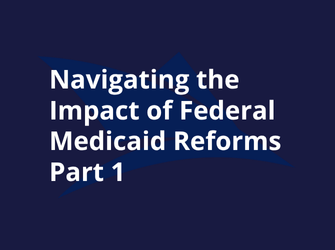The newest budget proposal from House of Republicans could lead to big changes for Medicaid—the health insurance program that covers over 90 million low-income Americans. According to The Hill, the plan includes $880 billion in cuts over the next 10 years.
What does that mean in real life? Less funding. More limits and potentially millions of people losing access to healthcare.
How Medicaid Currently Works
Right now, Medicaid operates on a needs-based model: if you qualify, the government helps pay for your care. However, under the new proposal, the federal government would impose a limit (known as a “cap”) on how much it provides to each state.
This means that even if more people require help, funding will not automatically increase. Instead of responding to demand, Medicaid will operate with a fixed budget. If costs rise due to crises like COVID or inflation, states may need to reduce services or remove people from coverage.
The Center on Budget and Policy Priorities warns that this shift could heavily impact states, especially those already working with tight budgets.
A wide range of healthcare leaders—from hospital execs to policy analysts—have voiced similar concerns. A recent Fierce Healthcare article shares insights from 23 industry experts on what these potential Medicaid cuts could mean for patients, providers, and the healthcare system as a whole.
Read the full perspectives here
Who Could Be Affected?
These changes would affect real individuals, not just numbers on a spreadsheet. Children, pregnant women, seniors in nursing homes, people with disabilities could all be at risk.
More than half of all the children in the U.S. are covered by Medicaid or the Children’s Health Insurance Policy (CHIP), according to Georgetown University’s Center for Children and Families. Funding reduction could mean fewer pediatric checkups, mental health services, and vaccinations.
Communities of color and rural populations could be disproportionally affected. The Times Weekly reports that Black, Latino, Indigenous, and rural Americans rely on Medicaid at higher rates—and often already face barriers to accessing care.
How Many People Could Lose Coverage?
Medicaid plays a critical role in funding nursing home care, mental health treatment, and services for people with disabilities. It acts not just as a safety net, but as a lifeline for individuals who may not have other healthcare options.
If the proposed budget passes in its current form, states may be forced to make difficult choices-such as reducing benefits or removing individuals from the program.
The Center for American Progress also notes that the budget plan could weaken other healthcare programs, including those created under the Affordable Care Act
As discussions around the federal budget continue the future of Medicaid remains uncertain. Proposed funding changes could also have widespread effects on access to healthcare, particularly for low-income families, communities of color, and rural populations. As policymakers debate next steps, millions of Americans could be watching closely to see how potential changes might affect their coverage and care.
References
-
The Hill – "Medicaid Cuts Proposed in House Republican Budget Plan"
-
Center on Budget and Policy Priorities – "House Republican Health Plan Shifts $370 Billion in Medicaid Costs to States"
-
CBPP – "People Losing Medicaid Under House Republican Bill Would Face High Barriers to Coverage"
-
Kaiser Family Foundation – "Analysis: Ryan's GOP Budget Plan Would Cause Cuts In Medicaid Coverage"
-
The Times Weekly – "House Republican Budget Plan Targets Vital Services, Hits Black and Marginalized Communities Hardest"
-
Georgetown University CCF – "House Republican Budget Includes Draconian Medicaid Cuts"
-
CBS News – "CBO Says GOP Budget Would Require Major Cuts to Medicaid"
-
Center for American Progress – "Latest House Republican Budget Threatens Medicare and Shreds the Safety Net"



